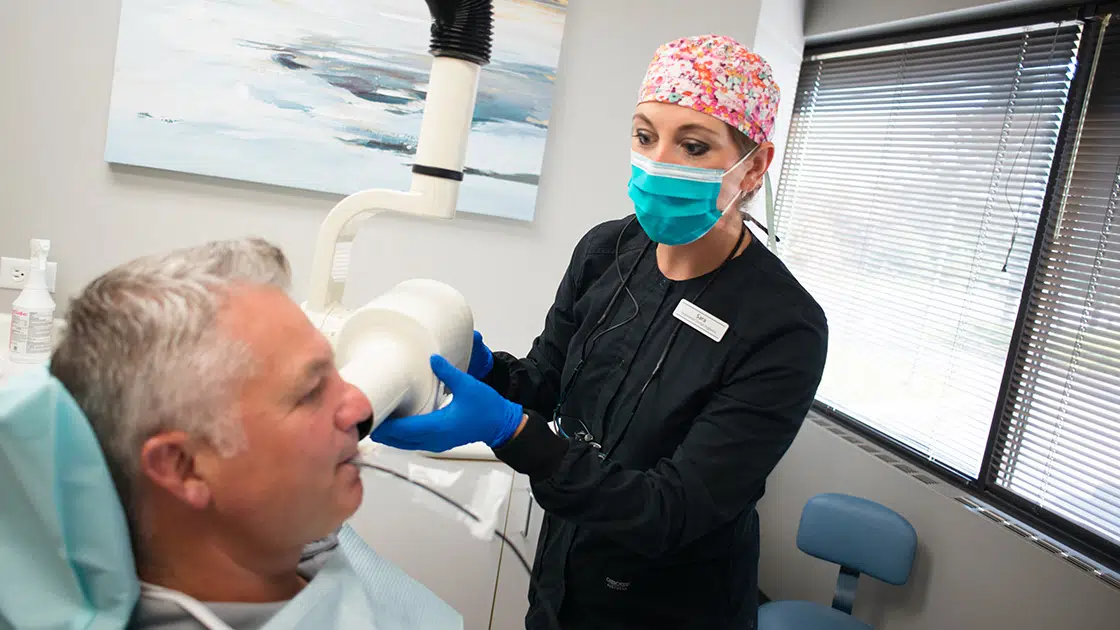
What Are Dentures?
Dentures are artificial teeth. Full dentures replace all of the teeth in either the upper or lower jaw. Partial dentures replace some of the teeth. When all or most of the teeth are too decayed or damaged to be restored, dentures provide a natural looking, functional replacement.
Benefits of Dentures
Dentures provide many benefits:
- Provides a full mouth replacement. When all or multiple teeth are too damaged to be saved, dentures provide a replacement option for all of the teeth in one piece.
- Affordable. Dentures are an affordable replacement option for multiple teeth, as replacing individual teeth with dental implants is expensive.
- Variety of types. There are many different types of dentures, providing an option that will work for everyone.
- Enjoy the foods you love. Dentures allow you to chew your food effectively so you can eat what you want.
- Restores speaking ability. Dentures can help you speak more clearly and pronounce words as you would have before with your natural teeth.
Types of Dentures
There are many types of dentures available:
- Traditional. Traditional dentures adhere to the gums via suction or adhesives. They typically have an acrylic base that resembles gum tissue with resin teeth.
- Partial. Partial dentures replace multiple teeth in the same arch. They attach to the remaining healthy teeth for support.
- Implant supported. Implant supported dentures attach to dental implants that are placed in the jaw bone. They are more secure than traditional dentures.
- All-on-4. All-on-4 dentures attach to 4 dental implants placed in the jaw. Because they only require 4, they can often be placed in a single day. But they are typically less secure than implant supported dentures that tend to use 6 or more implants.
Are You a Good Candidate for Dentures?
You may be a good candidate for dentures if all or the majority of your teeth are unable to be restored. Severe decay or damage to the teeth can render some teeth unable to be saved. Dentures provide an option for full or partial replacement. In order to be a candidate for implant supported dentures or all-on-4, the jaw bone needs to be solidly intact. If teeth have been missing for a while, the jaw bone can weaken and deteriorate. A bone graft procedure can be done to fortify and regenerate the bone in your jaw to prepare for implant placement.
Frequently Asked Questions
How long do dentures last?
It depends on the quality of the materials, but most dentures last an average of 10 years. With excellent care, they may last for 15 years or more. The key is to clean and maintain them according to your dentist’s instructions and to go to the dentist every 6 months for routine appointments.
Is it necessary to remove all of your teeth for dentures?
If any of your teeth are healthy enough to remain, they can be left in place. Healthy teeth can act as supports for partial dentures, preventing the need for adhesives or dental implants to keep them secure.
Are implant supported dentures removable?
Implant supported dentures can be removable or fixed, depending on your preference. Removable dentures are easier to clean, but fixed dentures are more secure. All-on-4 dentures only offer the fixed option.
